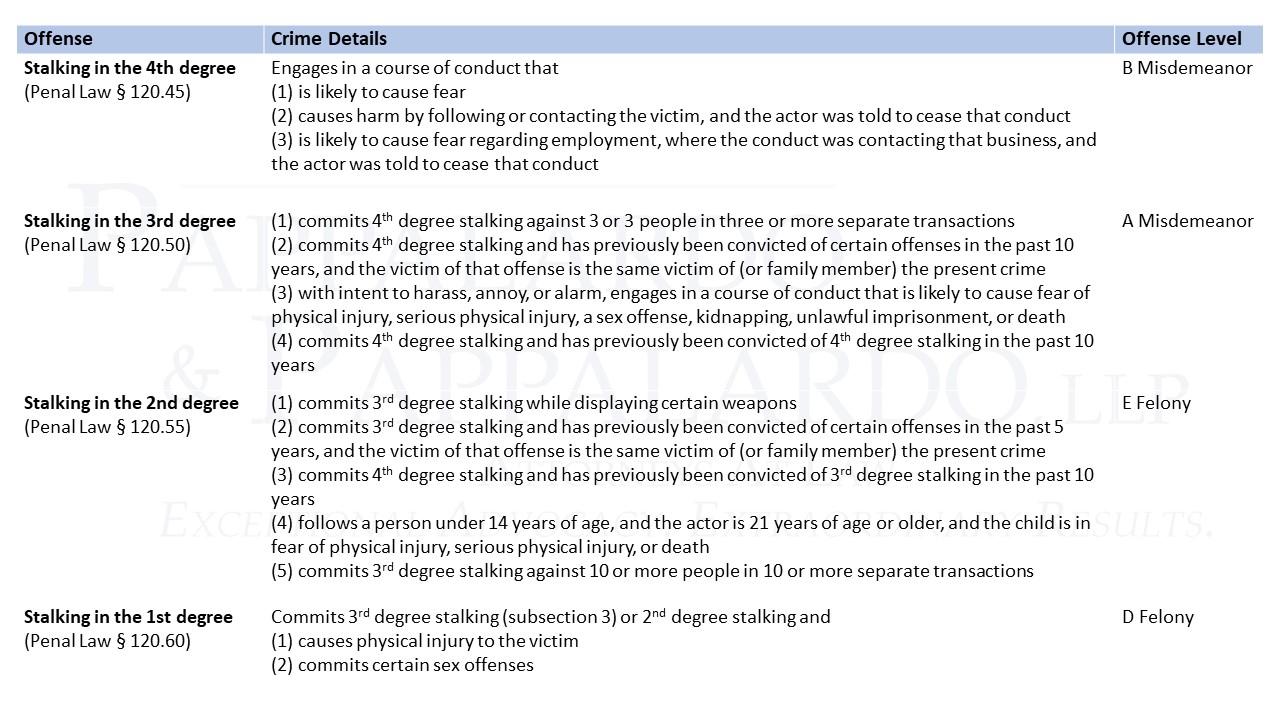January is National Stalking Awareness Month
Each year, an estimated 6 to 7.5 million people in the United States are stalked. Stalking is a serious and dangerous offense that impacts every community. And it is a criminal charge in every jurisdiction in the country.
One in 6 women and 1 in 17 men will experience stalking in their lifetime. In order to highlight the prevalence of this crime, January is National Stalking Awareness Month. In this blog post, we discuss what you need to know about this common offense.
What Is Stalking?
The general definition is when a person engages in pattern of behavior directed at a specific person that would cause a reasonable person to feel fear. And a stalker can use a variety of tactics, including:
- Phone calls
- Contacting via social media
- Texting
- Sending gifts or letters
- Monitoring and surveillance
- Showing up at home, school, or work
- Approaching friends and family
- Damaging property
- Harassment
Some of these behaviors, like damaging property, are crimes on their own. Yet other behaviors, such as sending gifts, may not be. While a stalker’s actions may not seem scary on the surface, fear is contextual. With stalking, these acts they are a part of a larger pattern of behavior. And such behaviors can be quite terrifying to the victim.
Stalking can also factor into to other related legal issues. Specifically, this includes domestic violence, violation of orders of protections, and divorce proceedings.
Stalking as a Criminal Offense in New York
Under Penal Law Article 120, New York criminalizes stalking. The seriousness of the offense will change based on the number of victims, the details of the behavior by the stalker, whether a weapon was used, and other factors. It can be charged as either a misdemeanor or a felony.
What to Do If You’re a Victim of Stalking
If you feel that you are being stalked, begin making notes. Specifically, try keeping a log of incidents and behaviors as this may help you if you choose to go to the authorities to report your stalker. If your stalker is someone you’re related to, your log can also help in related matrimonial and family court proceedings. Additionally, make a note of any vandalism or gifts received. Similarly, write down any statements or threats made through third parties and keep all texts and logs of phone calls. Don’t delete any messages sent through social media. If they approach you, take out your phone and start using the video feature to record them.
Most importantly, if you are in fear for your safety or that of others, call your local police department. Otherwise, in non-emergency situations, a local advocate in your community can provide support, information, and assistance. For example, the Westchester County Office for Women (https://women.westchestergov.com/) can provide resources and guidance to stalking victims. And the Westchester County District Attorney’s Office (https://www.westchesterda.net/victim-services/victims-justice-center) can also provide you with assistance.
References:
- Stalking Prevention, Awareness, and Resource Center (“SPARC”), “What To Do If You’re Being Stalked.” Available at: https://www.stalkingawareness.org/stalking-awareness-month-2021/ (last accessed Jan. 12, 2021).
- New York Penal Law, “Article 120: Assault and Related Offenses.” Available at: https://www.nysenate.gov/legislation/laws/PEN/P3THA120 (last accessed Jan. 12, 2021).

